Saturday, August 31, 2024
INDIA's "Hit With Footwear" Protest In Mumbai Over Shivaji Statue Collapse
Video: Man Sits On Chair In Middle Of UP Road, Gets Hit By Truck
On CCTV, Cops Seen Planting Drugs On Man In Mumbai, Suspended After Probe
Drunk Civic Volunteer In Kolkata Rams Bike Into RG Kar Protester, Arrested
Pune Couple Stops To Eat Vada Pav, Thief Steals Jewellery Worth 5 Lakhs
Friday, August 30, 2024
Google Analytics 4 introduces benchmarking data
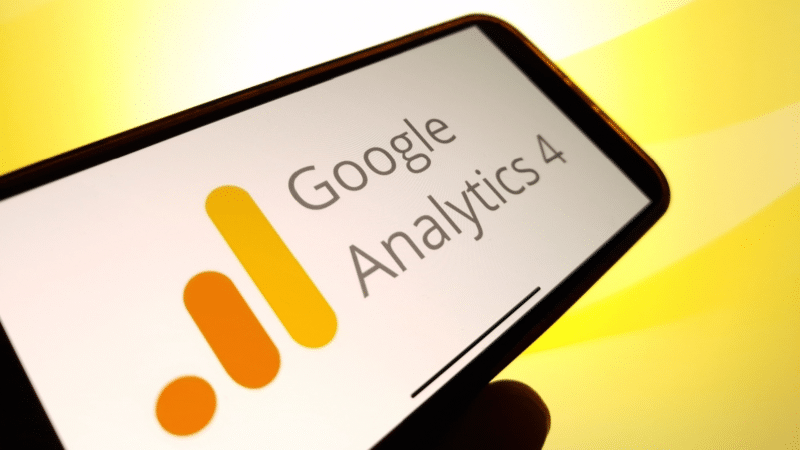
Google rolled out a significant update to Google Analytics 4 (GA4), allowing users to compare their performance with other businesses in their industry.
Why we care: This new feature will provide valuable context for advertisers trying to understand their performance relative to their peers, potentially informing strategic decisions and goal-setting.
How it works.
- Users can access benchmarking data if their property has the “Modeling contributions & business insights” setting enabled in Admin > Account Settings.
- Benchmarks are refreshed every 24 hours.
- The summary displays:
- Your trendline.
- Median in your peer group.
- Range in your peer group (25th to 75th percentile).
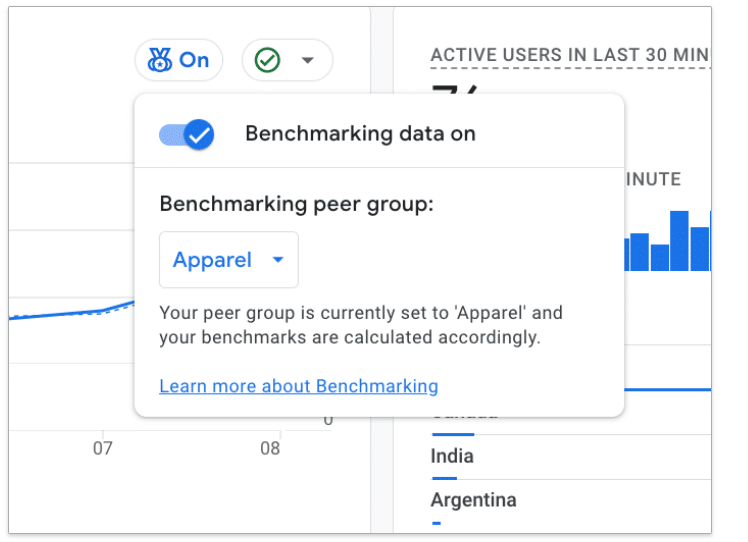
Key features.
- Customizable peer groups: Users can select from various categories to find the most relevant comparison group.
- Data privacy: Google assures that benchmarking data is encrypted, protected and aggregated to maintain privacy.
- Wide range of metrics: Covers acquisition, engagement, retention and monetization.
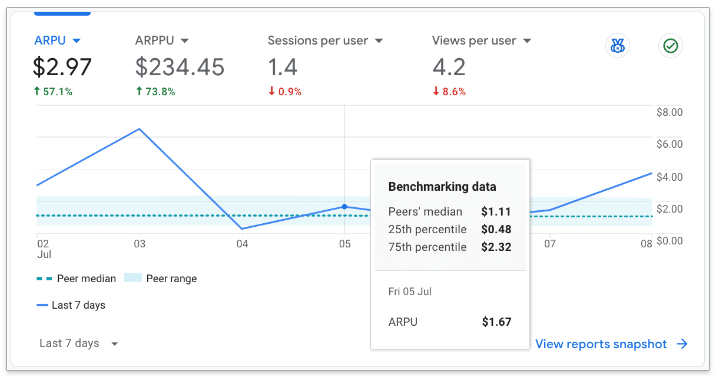
The big picture. This update addresses a long-standing need in the analytics community for comparative data, allowing businesses to gauge their performance more accurately within their industry context.
What’s next. Users are encouraged to check their GA4 accounts for this new feature and explore how it can enhance their analytics insights.
from Search Engine Land https://ift.tt/u41bJjS
via https://ift.tt/z3tWpcV https://ift.tt/u41bJjS
Thursday, August 29, 2024
Jamia Millia Islamia Suspends Professor Over Sexual Harassment Complaint
Delhi Cop Seen Dancing At Colleague's Farewell, Dies Moments Later
Wednesday, August 28, 2024
Parts Of Delhi Face Waterlogging, Traffic Jams After Heavy Overnight Rain
Teacher Stripped, Paraded For 'Misbehaving' With Girls; Handed Over To Cops
New Google tools to boost first-party data strategies
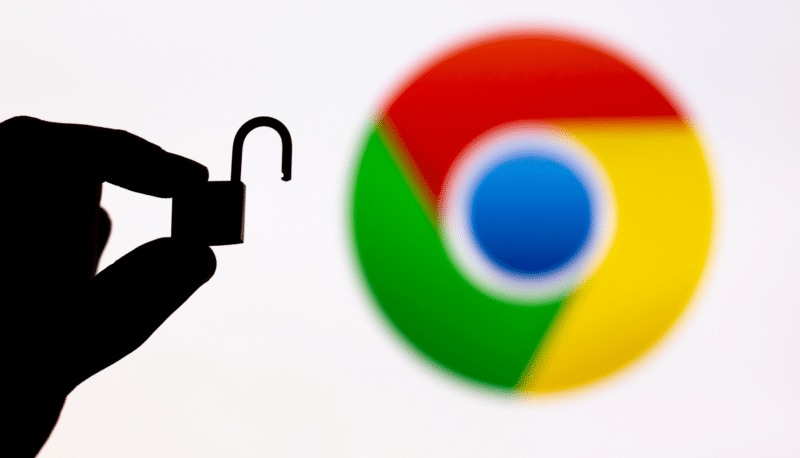
Google is rolling out two new features to help you navigate the evolving digital privacy landscape and strengthen first-party data strategies.
Why we care. Despite Google deciding to roll back on its plans to remove third-party cookies, with privacy regulations still in place, first-party data has become crucial. These tools is intended to help you simplify data collection and management while respecting user privacy.
Driving the news. Google announced Tag Diagnostics and a new consent management setup, both designed to streamline first-party data collection and utilization.
Details. The new offerings include:
Tag Diagnostics:
- Provides at-a-glance view of account health.
- Alerts users to potential measurement issues.
- Offers guidance on fixing problemsAvailable in Google Tag Manager, Google Ads, and Google Analytics.
Integrated Consent Management Platform (CMP) setup:
- Streamlines consent banner creation and consent mode implementation.
- Works within Google Ads, Analytics, and Tag Manager interfaces.
- Integrates with several CMP partners, including consent manager, Cookiebot, iubenda, and Usercentrics.
What’s next: Google plans to continue adding new diagnostics capabilities and investing in first-party data solutions as the industry evolves.
Bottom line. As digital advertising faces a privacy-driven shift, Google is positioning itself as a key enabler of first-party data strategies for advertisers.
from Search Engine Land https://ift.tt/Ks0jF9y
via https://ift.tt/JrUKIhj https://ift.tt/Ks0jF9y
Adtech antitrust trial judge blasts Google’s business practices
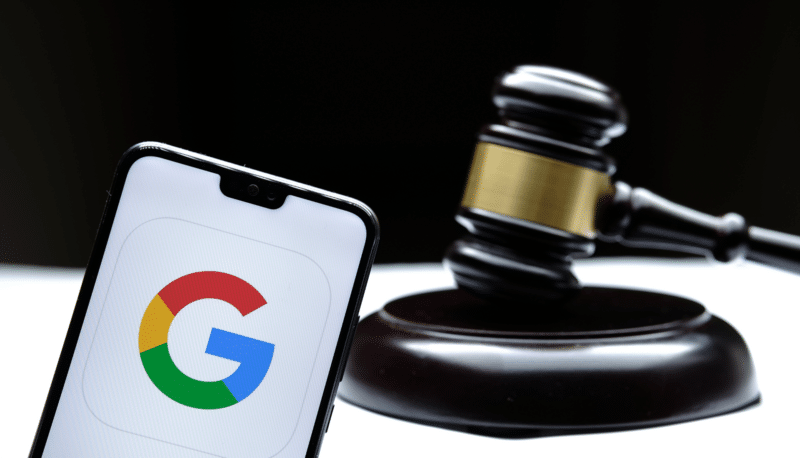
Google’s legal troubles appeared to worsen yesterday as the judge of the adtech antitrust trial delivered sharp criticism of the tech giant, signaling possible consequences for its business practices.
What happened: During the pre-trial motion hearings, Judge Leonie Brinkema sharply criticized Google for its handling of privileged information, labeling the company’s actions as “absolutely inappropriate and not proper.”
The court singled out the so-called ‘Walker Memo,’ containing what she referred to as “incredible smoking guns,” as evidence of potential wrongdoing.
The ‘Walker Memo’ refers to a 2008 memo by Google’s chief legal officer, Kent Walker, who created a “communication with care” policy. This policy advised employees to switch sensitive litigation-related chats to “history off” mode, automatically deleting chats within 24 hours, according to court documents.
The judge also condemned Google’s practice of auto-deleting chats, mockingly referred to by employees as “Vegas mode,” implying that the company may have intentionally destroyed evidence.
Why we care. If Google is found to have engaged in anticompetitive practices, it could lead to significant changes in the digital advertising landscape. That could include changes in pricing and bidding models, and possibly increased competition from other platforms.
The big picture: This trial, one of the most significant antitrust cases in decades, could reshape the landscape for the media and tech industries.
The judge’s remarks suggest that Google’s internal practices could heavily influence the trial’s outcome, with potential inferences drawn against the company as witnesses testify.
What to watch: With less than two weeks until the trial begins, Google faces mounting scrutiny. The judge’s familiarity with related antitrust rulings, including a recent unfavorable decision against Google, sets the stage for what could be a pivotal moment in the company’s legal battle.
Dig deeper.
- Google’s $2.3 million check secures bench trial in adtech antitrust case
- Google will face a new U.S. antitrust jury trial in September
U.S. vs. Google. This is the second major antitrust trial for Google within the year. Earlier this month, in the U.S. vs. Google antitrust trial, a federal judge ruled that Google illegally monopolized search and search advertising markets, especially by paying $20 billion annually for default search status on iPhones.
from Search Engine Land https://ift.tt/iOTeCod
via https://ift.tt/JrUKIhj https://ift.tt/iOTeCod
Tuesday, August 27, 2024
Doctor, 26, Dies By Suicide In Maharashtra, Blames Husband In Note: Cops
30-Year-Old Medical Student Dies By Suicide At Delhi Hospital: Cops
Google removes Auction Insights from Looker Studio

Google Ads users no longer have access to Auction Insights fields in new data sources within Looker Studio. Existing data sources will lose this access on Sept. 23.
Why we care. Auction Insights provides critical competitive data, helping advertisers understand their performance relative to competitors in the same auctions. The removal of these fields from Looker Studio will require advertisers to adjust their Looker reports and strategy tools, and revert to getting the competitive metrics they want to see in Google Ads.
Fields impacted. Affected fields include Auction Insight metrics such as Domain, Average Position, Impression Share, Outranking Share and several others critical for competitive analysis.
Action needed: Advertisers should proactively remove these fields from their Looker Studio reports and charts to prevent disruptions. Failing to do so could result in broken reports, impacting the ability to track and optimize ad performance effectively.
Yes but. Advertisers shouldn’t worry here – Google has not said Auction Insights will go away. You can still access all the competitive analysis metrics in Google Ads.
Bottom line: With the removal of Auction Insights from Looker Studio, you will need to find alternative ways to track competitive performance metrics and adjust Google Ads reporting strategies.
from Search Engine Land https://ift.tt/AiFP3Iw
via https://ift.tt/jyPBKDQ https://ift.tt/AiFP3Iw
Monday, August 26, 2024
India's Longest Sea Bridge Used By Over 50 Lakh Vehicles In Last 7 Months
Stampede Like Situation At Patna ISKCON During Janmashtami Celebration
Survey: Google updates, self-preferencing, AI Overviews are top SEO threats

Google’s favoritism of certain types of websites – or itself, in the form of search features and AI Overviews – are the biggest threats facing SEO consultants, according to a new survey from Aleyda Solis.
SEO threats in 2024. Google updates that favor certain types of sites (e.g., user-generated content, big brands) in the search results is the biggest threat to SEO consulting efforts, according to 52% of survey respondents.
- Google favoring its own features/services over external sites was the second biggest threat (48%) while AI Overviews came in third (41%).
- Other real SEO threats are the adoption of LLMs to search instead of Google (37%); AI personalization of Google Search results (32%) and adoption of social platforms to search (28%).
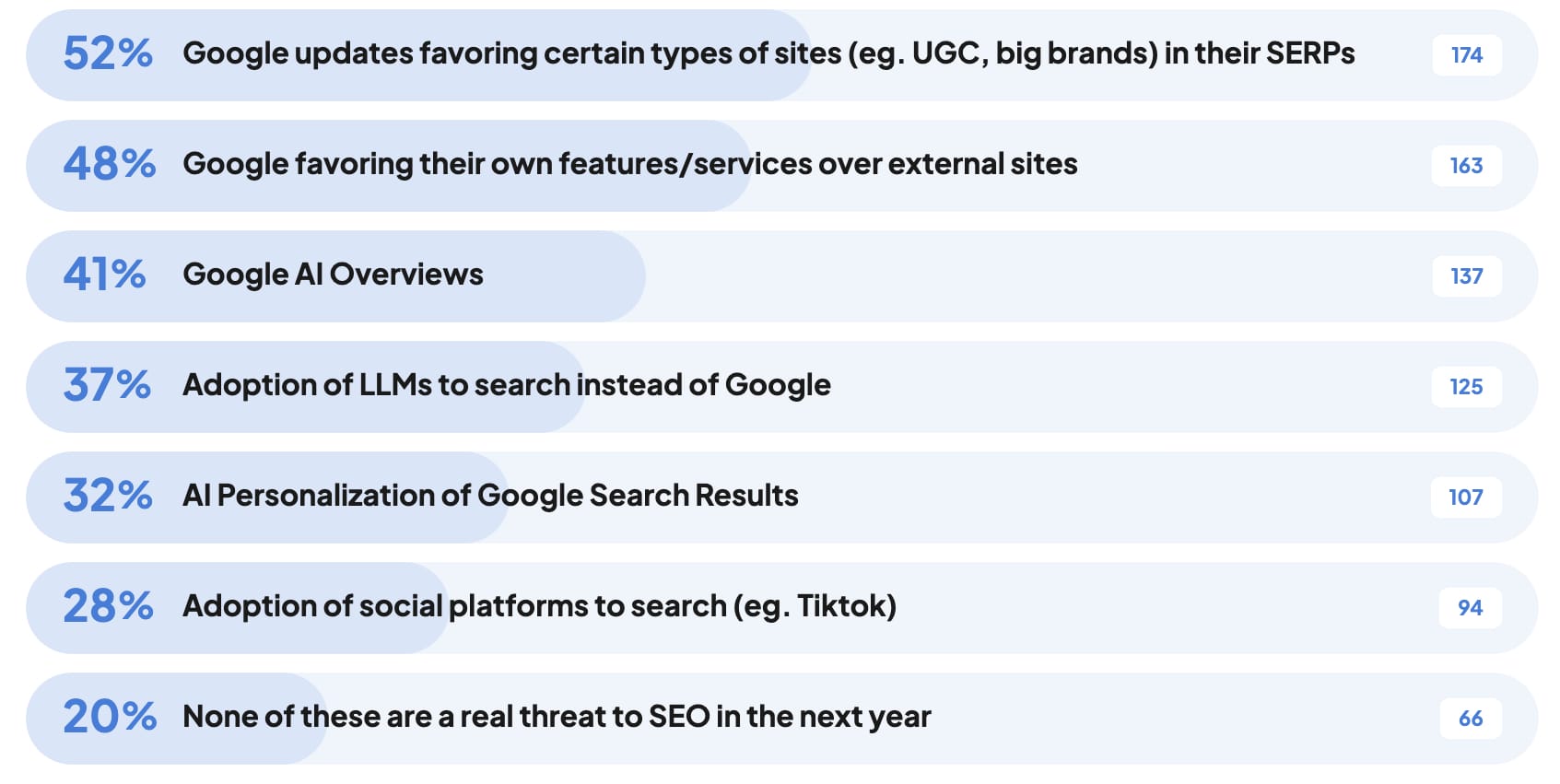
Counter threats. So how are SEOs combating these threats? Based on responses Solis received, SEOs are focusing on:
- Improving content quality. High-quality, valuable, engaging, helpful and intent-based content. Which really is not new, per se.
- E-E-A-T. This is a concept that represents a collection of ranking signals related to content, links and user interactions.
- Traffic diversification. This is something Google’s Danny Sullivan discussed recently.
- Staying updated. Which you can do, in part, by signing up for Search Engine Land’s daily newsletter.
Why we care. SEO is more difficult than ever in 2024 – especially for smaller and mid-sized brands and websites. We’re already seeing many threats in 2024 (e.g., Google algorithm updates, more competition and complexity, less resources). But there continue to be many opportunities to reach and influence people during search journeys in today’s fragmented search landscape.
About the survey. The results are based on responses from 337 SEO consultants, collected between July 21 and Aug. 21.
The report. You can read it here: The SEOFOMO State of SEO Consulting – Survey 2024 Results.
from Search Engine Land https://ift.tt/sI49BJP
via https://ift.tt/J4OftkE https://ift.tt/sI49BJP
Sunday, August 25, 2024
Case Against Thane Man For Filming Woman In Jewellery Shop's Dressing Room
Shots Fired Outside Delhi Cafe After Argument With Owner, 2 Arrested
UP Man Fined For Driving Car Without Helmet By Noida Police
Saturday, August 24, 2024
CBI Raids Premises Of Kolkata Hospital's Ex Principal In Corruption Probe
9-Year-Old, Alone At Home, Allegedly Raped By Neighbour In UP: Cops
Friday, August 23, 2024
Weather Office Issues Orange Alert For Heavy Rain In Mumbai, Thane, Palghar
Boy, 15, Drowns While Playing In Delhi After Heavy Rain
3-Year-Old Accident Victim Buried In Secrecy, Body Exhumed After 18 days
Thursday, August 22, 2024
Man Electrocuted Outside His House On Waterlogged Road In Delhi: Cops
17-Year-Old Girl Dies After Falling Off Balcony At Delhi Home: Police
Wednesday, August 21, 2024
Maharashtra Schools Ordered To Install CCTVs Within A Month After Violence
Report: Google encouraged advertisers to target teens on YouTube
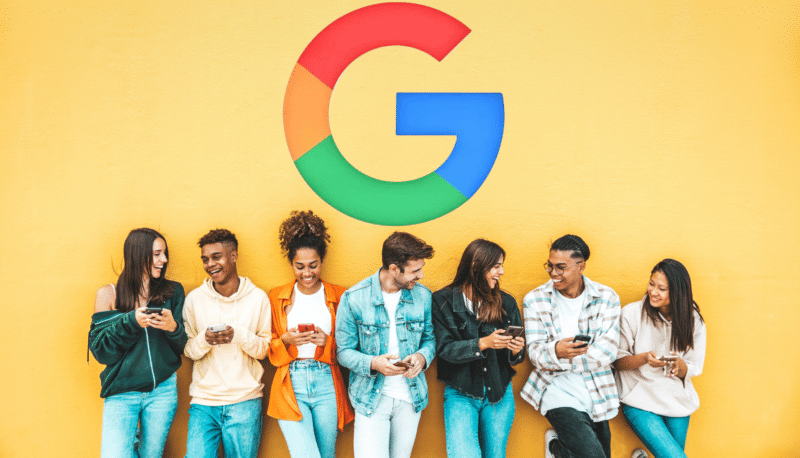
Google sales representatives allegedly advised advertisers to target teenage users on YouTube, seemingly in violation of the platform’s own policies prohibiting the targeting of minors.
Key details:
- Google reps reportedly told several ad buyers to target the “unknown” category of YouTube users, which likely includes teens.
- This activity goes beyond the previously reported agreement between Google and Meta to target 13- to 17-year-olds on YouTube.
- Google announced in 2021 that it would no longer allow advertisers to target users under 18 based on age, gender or interests.
- However, the “unknown” user category, where demographic data is not known to Google, has been presented as a way to potentially reach teenage users.
- One ad buyer said a Google rep suggested targeting 16+ year olds with “disposable income,” again by using the unknown category.
- Another buyer said a large entertainment brand eventually convinced Google to let them upload their own first-party data on teens to target on YouTube, despite the platform’s policies.
Insufficient enforcement. This revelation raises serious concerns about Google’s enforcement of its own policies prohibiting the targeting of minors, especially as legislation like the updated Children’s Online Privacy Protection Act aims to further restrict online advertising to teenagers.
Why we care. While the temptation to access hard-to-reach teenage audiences may be strong, advertisers should be cautious about engaging in any tactics that skirt Google’s policies or put minors at risk. The potential risks, including legal repercussions, far outweigh any short-term advertising gains.
Google’s response. A Google spokesperson said the company “strictly prohibits ads being personalized to people under 18” and will be taking action to reinforce this with sales representatives. However, the examples provided by ad buyers suggest the company has not effectively prevented this practice.
The big picture. This incident underscores the ongoing tension between the data-driven demands of advertisers and the need to protect young internet users from potentially harmful or exploitative advertising practices.
from Search Engine Land https://ift.tt/pMHzwmI
via https://ift.tt/ciZKwPq https://ift.tt/pMHzwmI
West Bengal Governor Visits Kolkata Rape Victim's Residence
Central Force Recce At Kolkata Hospital Where Doctor Was Raped, Murdered
Tuesday, August 20, 2024
Delhi Man's Decomposed Body Found At Home, Police Suspect Wife's Role
Pigeon Fails To Fly At I-Day Event, Cop Calls For Disciplinary Action
Noida Man Jailed For 10 Years For Kidnapping, Raping Minor In 2021
Monday, August 19, 2024
Google apologizes to advertisers for major Shopping Ads glitch
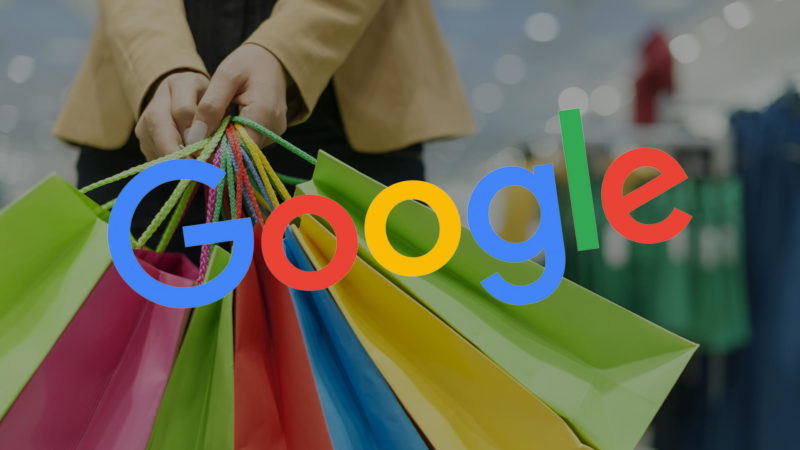
Google Ads experienced a significant system glitch affecting its Shopping product serving late last month.
- This error resulted in advertisers’ products being displayed in other merchants’ ad accounts, potentially exposing sensitive business data to competitors.
- The incident has left many advertisers frustrated not only by the technical failure but also by Google’s inadequate communication in its aftermath.
Google comms. Google reached out to advertisers today about the issue and what they have done about the issue. Hana Kobzová shared the email she received:
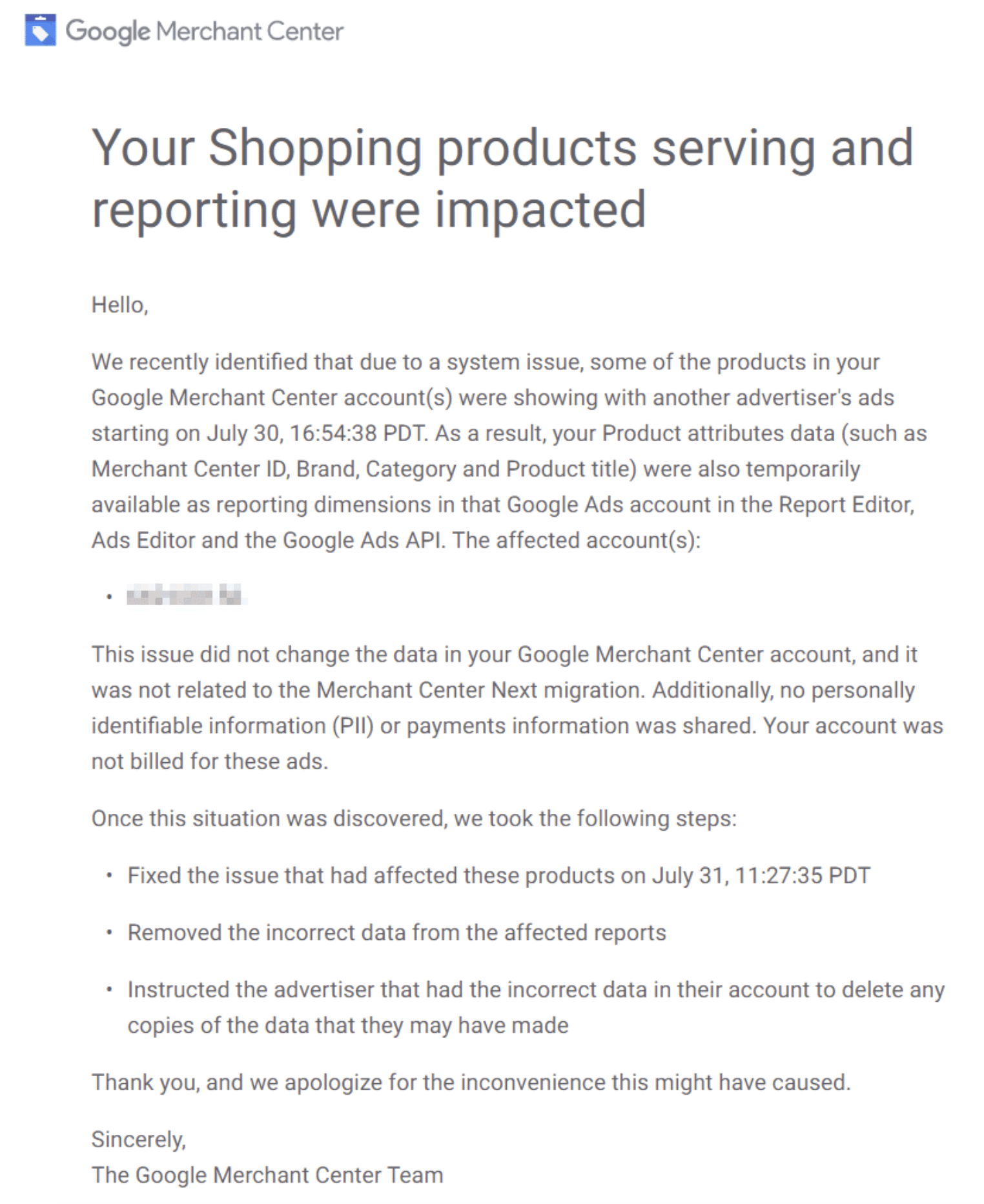
Several advertisers aren’t happy with Google’s response.
Lack of transparency and timeliness. Many industry professionals have criticized Google for its delayed and opaque response to the issue.
Mike Ryan, Head of Ecommerce and a prominent voice in the digital advertising space, pointed out the use of euphemistic language in Google’s communications, such as referring to the incident as a “system issue.”
- Ryan argues that this vague terminology lacks accountability and fails to provide advertisers with a clear explanation of what transpired.
He is also displeased with the language used:
- “I also find the phrase ‘we apologize for the inconvenience this might have caused”‘ trite and insincere.”
Melissa Mackey, Director of Paid Search, a veteran with 22 years of experience in paid search, described the glitch as “one of the craziest things” she’s ever encountered in her career, emphasizing the bizarreness of the situation and the insufficient explanation provided.
Brett Bodofsky highlighted the initial lack of formal communication when the issue first arose, noting that while Ginny Marvin (Google’s Ads Liaison) provided updates via social media, more immediate and official communications would have been beneficial.
- Bodofsky stressed that “clients want and deserve answers in an expedited fashion when issues like this arise.”
Inconsistent messaging on compensation. The handling of compensation for affected advertisers has also been a point of contention.
Chris Ridley, Head of Paid Media, pointed out the lack of a clear timeline for issuing credits, with Google repeatedly stating they would be provided in “coming weeks” for over two weeks.
Adding to the confusion, Hana Kobzová, PPC Specialist, noted inconsistencies in the emails sent to different advertisers. While some received notifications about forthcoming credits, others impacted by the issue did not receive any mention of compensation, leading to further uncertainty and frustration.
- Kobzová noted – I am confused because there was supposed to be credit issued to impacted accounts. The subject of the email I received is “Your Shopping products serving and reporting were impacted,” but it doesn’t mention anything about credit.
Dids Reeve
Calls for detailed impact reports. Several advertisers have expressed a desire for more comprehensive information about the incident’s impact on their accounts.
McKenzie Davis, Senior SEM specialist, emphasized the need for “timely and transparent communication,” suggesting that Google should provide detailed reports outlining the percentage of spend, clicks, and impressions that went toward products from other Google Merchant Center accounts. Davis also noted:
- “The vague messaging that referenced ‘a small amount of ads traffic in your Google Ads Account [that was] showing products form other Google Merchant Center accounts’ came nearly three weeks after the incident, and effectively told us nothing.”
- “In the context of recent headlines regarding shady practices by the platform, there is not enough trust in the advertiser/Google relationship for this incident to be managed as it was”
James Foster Senior Paid Media Manager, echoed this sentiment, calling for “more information about the impact this had to my ad account, the data that other advertisers were able to see, and how much ad spend went through my account that was for other businesses/my competitors.”
Security and trust concerns. Odi Caspi, Founder and Digital Marketing specialist, raised concerns about the potential breach of confidentiality, noting that the glitch exposed data that should have been protected behind passwords and two-factor authentication.
- Caspi suggested that some form of compensation should be considered, not just for financial reasons, but as an acknowledgment of Google’s responsibility in the matter.
Moving forward. As the dust settles on this unprecedented glitch, the advertising community is calling for Google to:
- Provide a clearer, more detailed explanation of what caused the issue.
- Offer transparent reports on the impact to individual advertiser accounts.
- Communicate a definitive timeline for issuing credits to affected accounts.
- Outline measures being implemented to prevent similar incidents in the future.
This incident has underscored the critical importance of clear, timely and transparent communication from ad platforms, especially in crisis situations. As Google continue to be in the limelight for all the wrong reasons, maintaining trust between platforms and advertisers will be crucial for the industry’s continued growth and success.
from Search Engine Land https://ift.tt/YAXnTus
via https://ift.tt/Ui97TrM https://ift.tt/YAXnTus
Video: 4-Year-Old Girl Falls Off Cycle, Run Over By Car In Gujarat
19 Bengaluru Nursing Students In Hospital After Rat Repellent Sprayed In Hostel
Sunday, August 18, 2024
OPD On Road As Delhi Doctors Continue Strike Over Kolkata Horror: 10 Points
Fed Up With Stunt Riders, People Throw 2 Scooters Off Bengaluru Flyover
Mercedes Runs Over Cyclist In Delhi, Driver Arrested, Car Seized
Saturday, August 17, 2024
Polling Booths Set Up In Gurugram Highrises Ahead Of Haryana Polls
Friday, August 16, 2024
Man Clambers Up 2 Floors, Films Woman Taking Bath; Case Filed: Cops
Could your marketing automation be doing more? by Edna Chavira

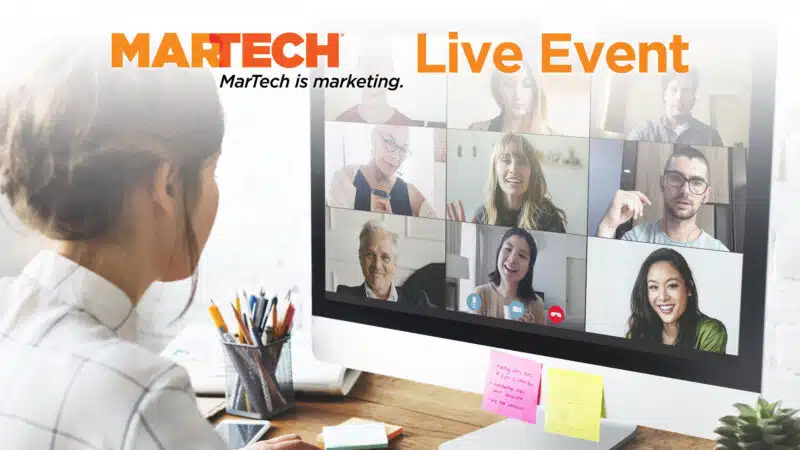
Many businesses found early success with marketing automation platforms. But as marketing needs evolve, a question arises: Is it time for a change?
Join us for Stuck on Autopilot? Upgrade Your Marketing Automation where we’ll explore:
- The signs it’s time to make a change
- How to evaluate different platforms
- Strategies for a smooth migration
- A real-world example of a successful transition
Don’t let outdated technology hold you back! Sign up today to learn how to future-proof your marketing automation and unlock new opportunities.
from Search Engine Land https://ift.tt/laAeMEQ
via https://ift.tt/vb8uLBn https://ift.tt/laAeMEQ
Parents Gave Names Of Interns, Doctors To CBI In Kolkata Horror: Sources
Interactive CTV ads boost engagement, fall short on purchases

A new study reveals the promise and limitations of interactive TV advertising. The key findings:
- 36% stronger unaided brand recall vs. standard video ads
- 95% of viewers prefer adding products to cart over immediate purchase
- Higher CPMs: 10-15% above industry standards
Why it matters. As CTV ad spend is projected to reach $33 billion by 2025, interactive formats could become a major player in the space.
By the numbers:
- 79% aided recall for interactive ads vs. 72% for standard video ads.
- 58% stronger unaided recall when combining standard and interactive ads.
Why we care. While not yet driving direct sales, interactive CTV ads offer a wealth of benefits that can significantly impact brand awareness, consumer understanding and overall marketing effectiveness.
What they’re saying:
- “TV isn’t coming over an antenna anymore… interactive ads yield a more effective ad experience,” said Robert Aksman, BrightLine co-founder.
- “With these interactive elements, you have proof that not only is somebody watching—they’re engaging,” said Andrea Kwiateck, Goodway Group.
The big picture. Interactive CTV ads represent a shift from passive viewing to active engagement, offering new opportunities for brands to connect with audiences.
What to watch. Development of add-to-cart functionality and potential for direct purchasing through streaming accounts.
from Search Engine Land https://ift.tt/SYZizqJ
via https://ift.tt/vb8uLBn https://ift.tt/SYZizqJ
Thursday, August 15, 2024
Google AI Overviews now show for signed-out users in the US

Google AI Overviews will now appear for all users in the United States, even if they are not signed into their Google account. Google has confirmed with Search Engine Land that AI Overviews are available for signed-out users in the US after we noticed Google testing it this morning.
What it looks like. I just conducted a search while not signed into Google using Chrome and Google showed me an AI Overview at the top of the search results.
Here is a screenshot:
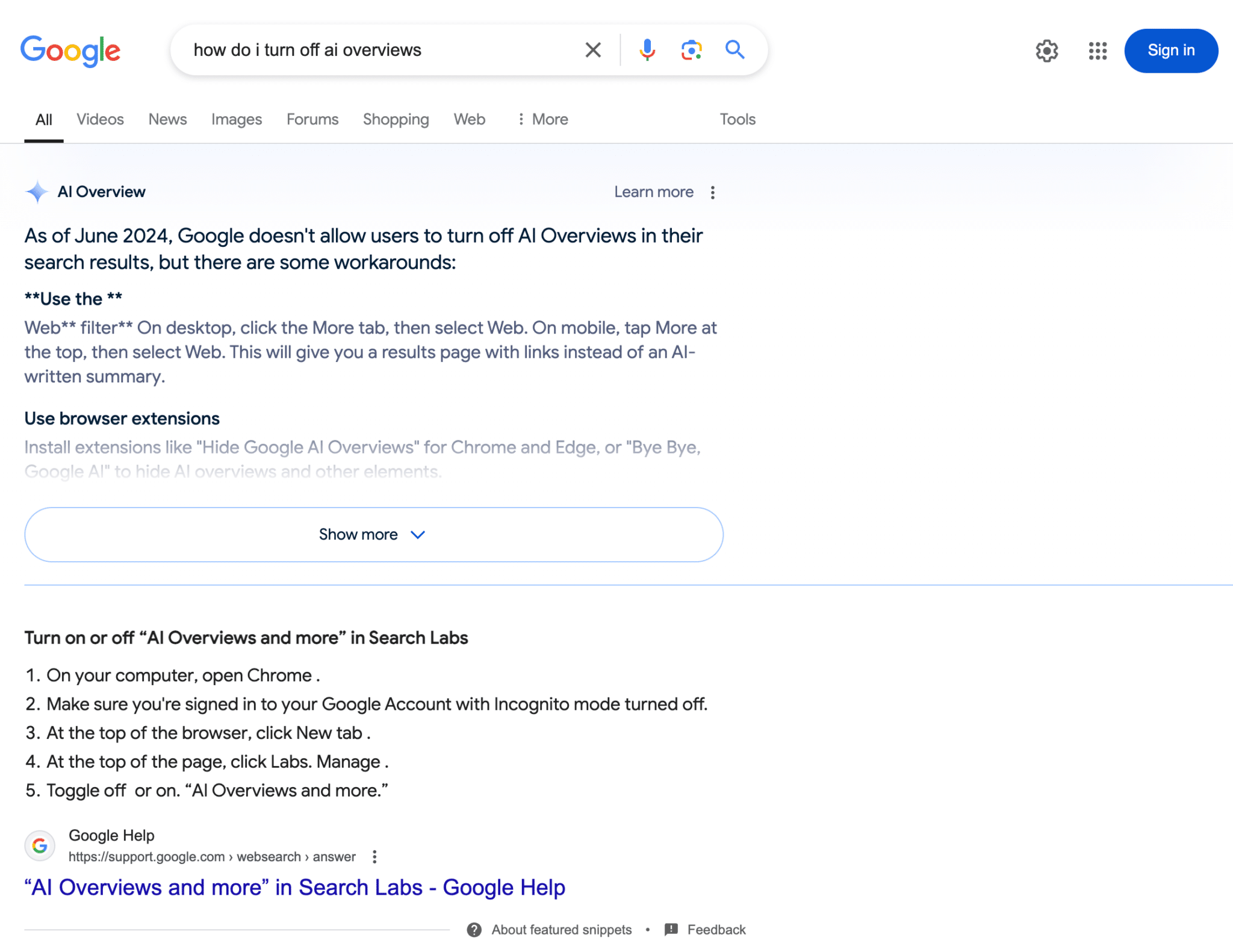
More details. As a reminder, Google launched AI Overviews to US searchers back in May, after the Google I/O event.
Today, Google expanded AI Overviews to six new countries, added new links to the AI Overviews and added new Search Labs experimental tests for AI Overviews.
Jon Henshaw posted on LinkedIn yesterday he was seeing these while signed out, so I dug in and Google confirmed, it is 100% rolled out to all US searchers. I should note, I personally do not see AI Overviews when searching logged in to my Google Workspace account but Google did tell me that Workspace accounts can see AI Overviews.
Why we care. As more and more searchers see AI Overviews, it might lead to different click behavior from the Google Search results. Google touts how AI Overviews should lead to more traffic to publishers, but publishers have good reason to be doubtful of such statements, especially since Google is not showing publishers distinct impression and click data from Search Console on AI Overviews.
This also means that SEO tools will be able to better track these AI Overviews, as Lily Ray pointed out. Mark Traphagen from seoClarity also confirmed that his toolset is seeing AI Overviews in incognito mode.
AI Overviews seem to be here for the foreseeable future and it is our job to ensure publishers and content creators get traffic from Google Search, even with AI Overviews being found at the top of those results.
from Search Engine Land https://ift.tt/2gOEWXA
via https://ift.tt/wxgA72R https://ift.tt/2gOEWXA
Wednesday, August 14, 2024
Delhi Airport Becomes 1st To Achieve Net Zero Carbon Emission Status
FTC finalizes rule to combat fake reviews, testimonials
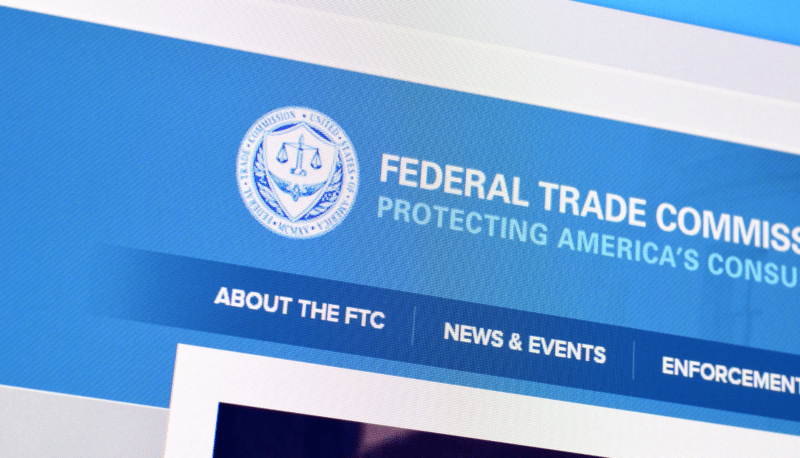
The Federal Trade Commission (FTC) has announced a final rule aimed at cracking down on deceptive practices in online reviews and testimonials.
Why we care. Fake reviews can mislead consumers, waste time and money, and unfairly disadvantage honest advertisers. This rule gives the FTC more power to enforce against violators and deter AI-generated fake reviews.
Key details:
- The rule prohibits the sale, purchase, and creation of fake or false consumer reviews and testimonials.
- It bans buying positive or negative reviews and certain undisclosed insider reviews.
- The rule also addresses review suppression and misuse of fake social media indicators.
Between the lines. This move strengthens the FTC’s enforcement capabilities following the Supreme Court’s AMG Capital Management decision, which limited the agency’s ability to seek monetary relief under the FTC Act.
What they’re saying. FTC Chair Lina M. Khan said the rule will “protect Americans from getting cheated, put businesses that unlawfully game the system on notice, and promote markets that are fair, honest, and competitive.”
What’s next. The rule will take effect 60 days after its publication in the Federal Register.
The big picture. This rule is part of the FTC’s broader efforts to combat deceptive practices in digital marketing and protect consumers in an increasingly AI-influenced marketplace.
from Search Engine Land https://ift.tt/rnBTxys
via https://ift.tt/2oWHKMZ https://ift.tt/rnBTxys
"Wrapped In Proud Tricolours": Gautam Adani Shares Airport Terminals' Video
Tuesday, August 13, 2024
"Trick Won't Work": Mumbai Police To Man Pulling Off "Stunts" Across City
Report: U.S. considering forcing a Google breakup
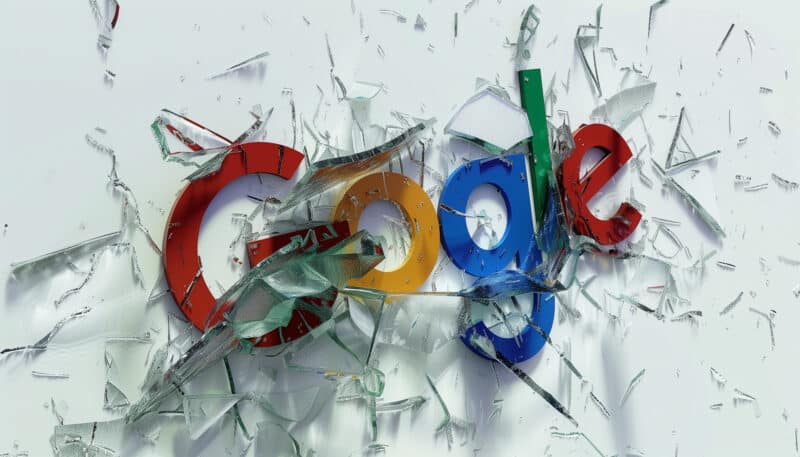
The U.S. Justice Department is reportedly considering forcing parent company Alphabet to shed at least one of its units. Among the possibilities being discussed, according to Bloomberg:
- Chrome, Google’s web browser. This one seems highly unlikely to me – web browsers aren’t exactly a lucrative business model.
- Android, Google’s operating system.
- Google Ads, the money-printing machine that generates billions of search and advertising dollars every quarter. (Although Bloomberg called it “AdWords.” They clearly didn’t get the memo that AdWords ceased to exist in 2018).
Why we care. While a breakup of Alphabet’s Google seems highly unlikely right now (Microsoft ultimately avoided a similar fate nearly 25 years ago despite a similar antitrust ruling), nothing is impossible. If Google is broken up, it will undoubtedly impact all search marketers. How much it will impact your SEO and ad strategies will be the big question, but let’s not get ahead of ourselves just yet.
Other options. The U.S. is also considering some “less severe options”:
- Forcing Google to share more data with competitors.
- Somehow limiting Google from gaining an “unfair advantage in AI products.”
What about YouTube? One Alphabet unit not mentioned in the report was YouTube. This seems a bit surprising considering the video-sharing platform brought in $31.51 billion in advertising in 2023.
from Search Engine Land https://ift.tt/qEKsvNu
via https://ift.tt/GbmPFZe https://ift.tt/qEKsvNu
Cop Among 7 Killed In 3 Separate Road Accidents In Uttar Pradesh: Police
Monday, August 12, 2024
Luxury Watches Worth Rs 3 Crore Stolen From UP's Ghaziabad Showroom: Cops
Mobile-Game-Addicted Man Dies By Suicide After Failing To Repay Debts
Facebook Ads 2024 data: Clicks and conversions up, costs down

Facebook advertising continues to offer strong ROI for businesses in 2024, with some key metrics improving year-over-year according to a report released by Wordstream.
Why it matters. As Google faces antitrust scrutiny and rising ad costs, Facebook is maintaining relatively stable pricing and performance for advertisers.
By the numbers:
- Average click-through rate for lead campaigns: 2.53% (up from 2.50% in 2023)
- Average cost per click for lead campaigns: $1.88 (down from $1.92)
- Average conversion rate for lead campaigns: 8.78% (up from 8.25%)
- Average cost per lead: $21.98 (down from $23.10)
Why we care. Understanding these trends and benchmarks can help advertisers make informed decisions about their digital marketing strategies, budget allocations, and performance expectations. These industry averages provide valuable benchmarks for advertisers to gauge their own campaign performance and set realistic goals.
Between the lines. Facebook’s growing user base and high daily engagement time may be contributing to its advertising stability.
- Facebook has 3 billion monthly active users
- Average user spends 35 minutes per day on the platform
The big picture. Facebook ads remain an effective complement to search advertising, with generally lower costs and more stable year-over-year performance.
What they’re saying:
- “Many consumers are searching for businesses on social media first in lieu of traditional search platforms,” says Tyler Mask, Senior Manager at LocaliQ.
- “The in-platform lead form is more appealing for users for particular offers,” notes Brett McHale, Founder of Empiric Marketing.
What to watch. From the report there are four ways to watch how advertisers will integrate Facebook into their strategies:
- Adoption of AI-driven tools like Advantage+ audiences could further impact ad performance metrics
- Leveraging AI-powered creative tools to help create more visually appealing ads, potentially increasing click-through rates (CTR)
- Utilizing the Facebook ads conversions API helping to track offline conversions potentially leading to increase in conversion rate
- Having Facebook as part of a broader marketing strategy including other social platforms, SEO and search ads.
The bottom line. While individual results may vary, these benchmarks provide a useful gauge for advertisers to measure their Facebook campaign performance against industry averages.
from Search Engine Land https://ift.tt/uyg0xk6
via https://ift.tt/ZO8tvLx https://ift.tt/uyg0xk6
Sunday, August 11, 2024
Snake vs 3 Mongooses: Watch Epic Showdown At Patna Airport Runway
Boy, 13, Dies By Suicide In Maharashtra, Blames Teacher, Classmates
Saturday, August 10, 2024
Woman, 56, Gets Molested After Blaming Navi Mumbai Doctor For Son's Death
Boy, Playing Cricket, Goes To Get A Ball, Dies Of Electrocution In Delhi
How Bluetooth Headset Led Kolkata Cops To Trainee Doctor's Murder Accused
Delhi Court Acquits Man Of Dowry Death Citing Insufficient Evidence
Friday, August 9, 2024
Assam Police In Joint Operation Seize Drugs Worth Rs 120 Crore
Ex-Rajasthan Minister Kirodi Lal Meena says He Resigned Because...
Woman Trainee Doctor Found Dead At Kolkata Hospital, Mother Alleges Murder
Thursday, August 8, 2024
Google Ads API v17_1 introduces new features and enhancements
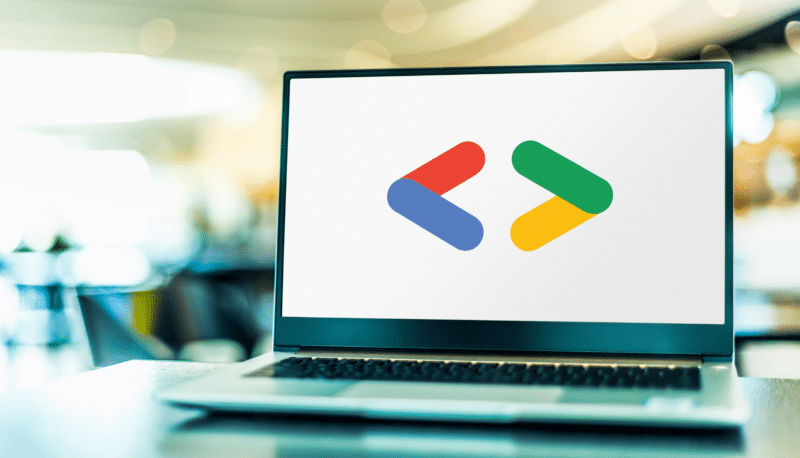
Google announced the release of v17_1 of the Google Ads API, introducing several new features and updates for developers and advertisers.
Key Updates:
ShareablePreviewService.GenerateShareablePreviews(): Generates shareable ad preview URLs for enabled and paused asset groups, with expiration dates included.AdGroupAdService.RemoveAutomaticallyCreatedAssets(): Allows removal of automatically created assets linked to Responsive Search Ads.- New
ASSET_GROUPchange status resource type. - New
offline_conversion_upload_conversion_action_summaryreport for offline conversion diagnostics. - Added metrics to offline diagnostics reports to track conversions still being processed.
- Support for
segments.sk_ad_network_versionandsegments.dateforper_store_viewsegmentation. - Retrieving information on video campaign bidding strategies, including Fixed CPM and Target CPV.
- New
segments.ad_format_typefor compatible reports.
Why we care. These updates provide advertisers and developers with more granular control, insights, and flexibility when working with the Google Ads API. The new preview, asset management, and offline conversion diagnostics features, in particular, address common pain points.
What’s Next. Developers will need to upgrade their client libraries and code to take advantage of the v17_1 features, which will be published next week. Google notes that this release has no breaking changes.
from Search Engine Land https://ift.tt/IQNpH8y
via https://ift.tt/OdsNVFA https://ift.tt/IQNpH8y
Wednesday, August 7, 2024
Probe Panel Blames Rau's IAS, Civic Body For Delhi Basement Tragedy
Google enhances Local Services Ads with auto-selected photos
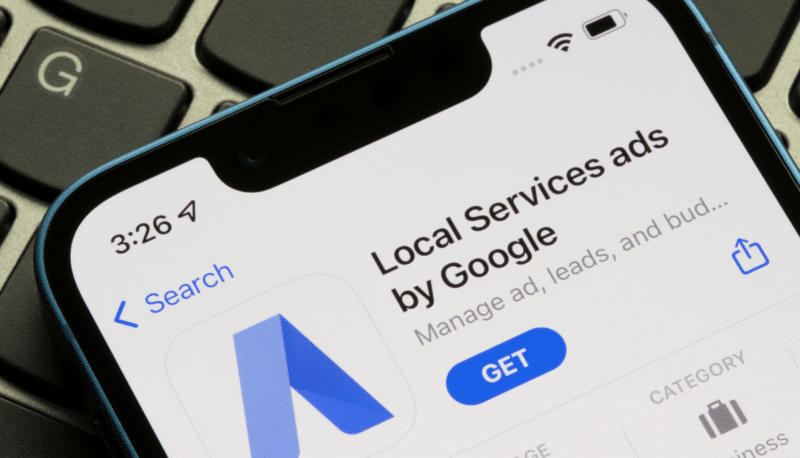
Google is rolling out a new feature for Local Services Ads (LSA) that automatically selects profile photos to display in advertisements.
Why we care. This update aims to increase ad engagement and potentially improve ad rankings for local service providers.
How it works:
- Google will choose photos from advertisers’ LSA profiles based on their likelihood to boost engagement.
- Photos won’t appear in every ad, depending on user queries and other factors.
Key details:
- The feature launches today for all Local Services advertisers.
- Adding photos to LSA profiles can help improve ad rankings.
Google’s recommendations:
- Upload 3-5 high-quality images to your LSA profile.
- Ensure photos are relevant to your work, original, and not copied or stolen.
What to watch. How this change affects ad performance and ranking for local service providers, especially those who haven’t previously focused on visual content in their profiles.
First seen. We were first alerted to this update from Google Ads Liaison, Ginny Marvin’s X:
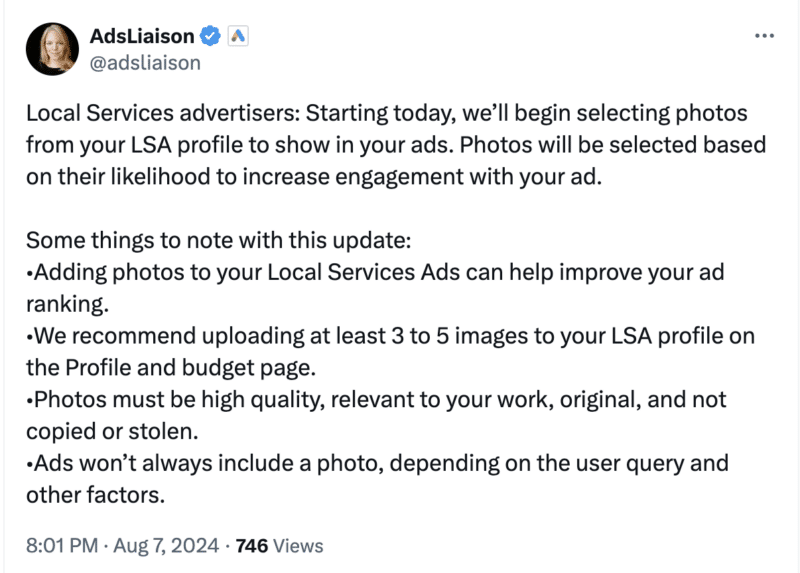
The bottom line. Local Services advertisers should review and update their profile photos to take full advantage of this new feature and potentially improve their ad performance
from Search Engine Land https://ift.tt/Q1dsmbM
via https://ift.tt/GHMFJ4O https://ift.tt/Q1dsmbM
On Camera, UP Cop Slaps Woman, Pulls Out Gun In Road Rage
Tuesday, August 6, 2024
Video: People Loot Milk From Tanker That Collided With Truck In UP
Google declared a monopoly: industry reactions and implications
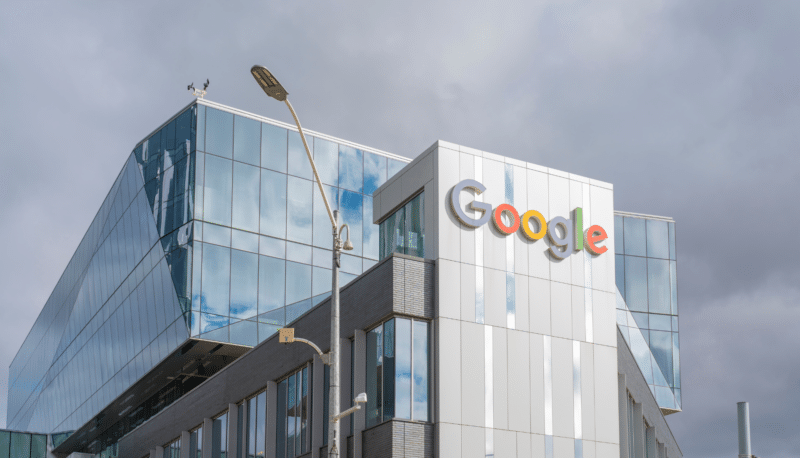
Yesterday the ruling passed that Google is a monopoly after the 10 week trial that occurred last year.
Here are the key reactions from search advertisers:
Google’s Appeal and the Future Legal Battle
Julie Bacchini, president and founder, Neptune Moon, underscores that while the court ruling declaring Google a monopoly is significant, the real impact will emerge during the remedy phase and Google’s inevitable appeal.
- “Google will appeal (and they said they will in their comically bad statement about the ruling) and that will be a slow process. But it is the remedy phase that will ultimately decide what this ruling will actually mean in practical terms.”
- “Also, this case was as much about setting the table for the Google advertising case that goes to trial in September. This case got A LOT on the record that will likely be used in the upcoming trial.”
- “Monopolistic behaviours have gone essentially unchecked in a lot of industries since the Reagan administration and maybe that hasn’t been such a good idea. These cases are starting to try to act on that. The App store cases run along the same lines.
- “If the Sherman antitrust act had been enforced over even the last 25 years, the business landscape would look very different. It wasn’t and we have what we have.”
- “To be fair too, Google is like any other publicly traded company today – their primary goal is to make sure the meet analysts expectations every quarter. That’s it. And I think we often forget that. Their decisions all come back to that core. And what that makes them do can make it feel like they are a big, kinda evil corporation.”
Oscar Ford, CEO and PPC specialist finds the ruling’s development fascinating and anticipates a prolonged legal battle due to Google’s appeal.:
- “Google are appealing the ruling, so this will roll on for a while longer. I’m not sure what the outcome is, but to break up an existing monopoly the only option surely is to split it into separate companies?”
- “Google’s response to the ruling is amusing but they have a point – they have made the best search engine and nothing else has come close for decades.”
Chris Ridley, Head of Paid media predicts a resolution similar to that of Google shopping in 2017:
- “What I do see happening is an echo of what we saw happen to Google Shopping in 2017. A similar EU ruling regarding Google’s Shopping that led to Google opening up their Shopping space to third-party Comparison Shopping Services (CSS), which were granted a 20% discount on cost-per-clicks (CPCs) to ensure they could fairly compete.”
- “This could lead the way to Google introducing Comparison Text Advertising Services to the Google text ad market to dismantle Google’s monopoly on the text advertising market, which may also benefit from a similar discount on CPCs as a gesture of Google encouraging competition on their SERPs.”
Market Dynamics and Google’s Competitors
Chris Lloyd, B2B SaaS Marketing consultant, points out that Google’s market share has been declining due to its inability to innovate:
- “I think we are already seeing their decline, and it’s not due to regulatory rulings. Google has been losing market share for a couple of years now. Quite simply they can’t build and innovate and will continue to be outplayed by Perplexity, OpenAI, Meta, Apple.”
Sam Tomlinson, Executive Vice President and Digital strategist, criticizes the legal reasoning in the 286-page ruling, particularly the market definition, which he believes won’t hold up on appeal.
- “The market definition was categorically insane to me – something I don’t think gets upheld on appeal”
- “It isn’t like the winner today is always the winner tomorrow. Google even admitted that (and the court agreed) in this ruling, where they highlighted that Google has innovated massively, at great expense, despite having a ‘monopoly'”
- “Every other company, hedge fund, investment bank and PE fund does the exact same thing — which is why this feels ridiculous. It isn’t good or bad, it’s just profit-driven, because profit is an existential imperative for any business”
Navah Hopkins, Brand evangelist and PPC influencer, is disappointed that the US failed to establish search advertising as a distinct market:
- “I am disappointed in the US for not being able to make the case that search advertising is a market (I understand there’s another case in September, but the ruling makes it clear that information just wasn’t presented).”
- “The fact that this case started in 2020 and that’s when PMax began to really take hold speaks to the diversification that was clearly top of mind for Google. As the ruling stated “search text ads are a monopoly” but search advertising was not. PMax gives Google the cover it needs to still have some search without running a foul of the search text ads monopoly rules.”
- “That Microsoft was brought up as a serious competitor felt disingenuous. Though it is interesting to see how CPCs trended after each other (i.e. the market drove up costs not Google itself…which I’m skeptical about)”
- “There are a lot of openings for appeal issues, I agree. But I really think the testimony they got and internal Google documents are going to be a tough hill for Google to climb in the Ads case. So I can’t help but wonder if this case was more about making that one stick?”
Ethical and Practical Concerns
Sarah Stemen, Paid search specialist reflects on her disillusionment with Google and doubts any significant penalties will arise:
- “I need to stop gaslighting myself into thinking Google is great because they built my career. This is a capitalist driven company that lost sight of any values and it sucks.”
- “I think we all remember Microsoft and I would like to think that’s the outcome but I don’t actually think any penalty of any significant difference will happen especially under our current administration and court system.”
Reid Thomas, Marketing strategist, observes that the US ruling aligns closely with the EU’s mandate & questions a meaningful mandate:
- “Our point of views are all very US focused – isn’t this ruling very aligned with the EU ruling from a few years ago that mandated search engine choice?”
- “My question is – ‘What is a meaningful penalty?’. You can’t break google up like the bells.”
- “I also think it’s quite disingenuous to target the distribution agreements with the ‘If Google is so great, why are they paying?’ and the answer is: because this is a competitive market, and others could pay, too.”
The diverse opinions highlight the complexity of the issue and the far-reaching implications of the ruling for the tech industry, digital advertising, and antitrust law. As the legal process continues and potential remedies are considered, many in the industry are watching closely to see how this decision might reshape the future of search and digital advertising.
from Search Engine Land https://ift.tt/9yAp6Df
via https://ift.tt/XWPGkxl https://ift.tt/9yAp6Df
Advertisers react to Google Reporting and Product Listing glitch

Last week Thursday after reports from several advertisers, it was confirmed by Google that there was a major reporting blackout. Report Editor, Dashboards, and Saved Reports in the Google Ads web interface were down. On top of that Products, Product Groups and Listing Groups pages were down across the web interface, API, and Google Ads Editor.
The glitch, which Google claims affected only “a small fraction” of advertisers, exposed sensitive data across accounts and disrupted normal reporting services.
Advertisers had a lot to say about these issues varying from gratitude that they don’t look after e-commerce and so were not affected to those who found the lack of listing/product group data as a massive obstacle.
Practical Challenges
Greg Finn, Partner at Cypress North, highlighted the practical challenges:
- “The lack of listing/product group data last week was a massive obstacle for those shopping advertisers. Specifically, we have some campaigns (PMax) that feature monthly deals and sale items for some clients and were unable to confirm that campaigns were working correctly.”
- “While I understand that there was an error on Google’s behalf, flying blind without seeing any product data is beyond scary. As an advertiser, I would much rather see a mistake and continue to work than to know that there is a mistake and have no way to view product data.”
Data usage/Breach
Paid Search Specialist, Sarah Stemen, raised questions about data usage in Google’s auction system:
- “Well, we know Google knows prices of all products, profit margin, msrp, sales etc. But seeing the data cross contaminated makes me wonder if data is being leveraged in the auction more than Google will admit.”
Kate Luke, Head of Digital, emphasized the gravity of the data breach:
- “Let’s not gloss over the fact that this sensitive data is paramount to the businesses affected.”
She called for Google to “address those affected directly rather than deliver generic ‘resolutions’.”
Transparency/Timing
Performance and marketing consultant, Meriem Nacer expressed concerns about Google’s transparency:
- “Will they notify affected brands and reimburse them, or only respond if contacted? Many might not check their accounts or know how to. How did this happen?”
Nacer also feels that due to timing, it can’t be completely unrelated to the Merchant Center Next rollout –
- “They claim it’s unrelated to the Merchant Center Next rollout, but the timing coincides with updated PMax reporting and the upcoming migration. Is it just a coincidence, or did someone push that “big red button” we’ve always joked about? The situation raises many questions.”
Mike Ryan, Head of ecommerce, summed up the severity of the situation, with a particular concern that the issue began earlier than Google is claiming:
- “This is a serious potential breach of advertiser confidentiality, and seemingly also a huge billing fuckup. Google maintains that these errors only occurred from July 30 through July 31, however I have team members who state that this may have been occurring for two weeks or longer.”
Automation/Feed security
Julie Bacchini president and founder, Neptune Moon pointed out the broader implications including automation & questions the sanctity of the feed:
- “It definitely raises some questions about firewalls between accounts though doesn’t it? I think that is the most concerning piece.
- “Reporting and data lags happen. But data leaking is a much bigger issue. And taking it a step further, as automation takes over more and more, will we even know if something like this happens in the future?
- “The biggest issue I have is that it impacted feed based campaigns – so the sanctity of the feed is compromised. I would like a detailed explanation from Google Ads as to exactly how another advertiser’s feed data was allowed to infiltrate another account. And what they have done to ensure it can no longer happen.”
Competitive Intelligence
Marketing Director, Scott Frederickson detailed the potential competitive intelligence leaked:
- “The screenshots showing custom label content in the reports were chilling. For those who don’t know, those labels are entirely free-form. I’ve seen them used for margin bucketing, seasonality, stock controls, best sellers, various promotions, vendors, divisions, all kinds of things.”
Finally advertisers like Reid Thomas, Marketing Strategist, viewed the issue as “a tempest in a teapot… because I have never had an account where a even a week of reports being inaccessible would massively change strategy, especially given that real data wasn’t being blocked for automations, etc.”.
Majority of responses however indicated serious concerns about data privacy, competitive intelligence, and Google’s handling of the situation. As PPC specialist Chloe Varnfield, put it, “Trust in Google is low anyways, so it’s just another letdown.”
The incident has left many advertisers demanding more transparency and better safeguards from Google to prevent similar issues in the future.
from Search Engine Land https://ift.tt/f0pMVSQ
via https://ift.tt/XWPGkxl https://ift.tt/f0pMVSQ
Monday, August 5, 2024
80 Students Fall Ill Due To Food Poisoning In Uttar Pradesh
Future-proof your content by Edna Chavira


The digital world moves fast. What drives results today may not be effective tomorrow. To stay ahead, businesses must ensure their content is dynamic, engaging, and impactful.
To address this challenge, Adobe, REVOLT, and Protiviti Digital will be presenting “Embrace the Future of Content Management with a CMS Makeover,” on Thursday, August 8. This live panel discussion will explore strategies to maximize content impact, increase audience engagement, drive conversions, and boost brand awareness.
Our expert panel will delve into navigating the complex CMS landscape, identifying critical replatforming elements, and sharing REVOLT’s successful experience with Adobe Experience Manager.
Attendees will gain invaluable insights to future-proof their content strategy. Don’t miss it! Save your spot today!
from Search Engine Land https://ift.tt/Yj0H2AO
via https://ift.tt/7aSJX46 https://ift.tt/Yj0H2AO
Federal judge rules Google violated antitrust law
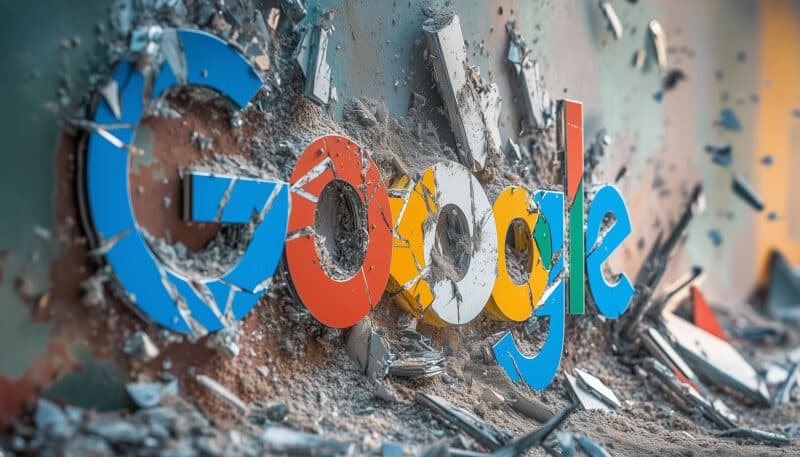
A federal judge ruled that Google maintained an illegal monopoly in search and advertising markets, marking a significant victory for the Department of Justice.
Why it matters. This is the first major decision in a wave of tech monopoly cases brought by the U.S. government in recent years, potentially setting a precedent for future rulings against other tech giants.
Key details:
- Judge Amit Mehta found Google violated Section 2 of the Sherman Act, which prohibits monpolies
- The court focused on Google’s exclusive search deals with Android and Apple devices as key to its anticompetitive behaviour.
- The ruling focuses on Google’s liability, not remedies
- Decision comes after a 10-week trial last fall
Why we care. While immediate changes are unlikely, advertisers should start preparing for potential long-term impacts on their digital marketing strategies.
Between the lines. The case revealed Google pays Apple $20 billion annually for default search status on iPhones.
The big picture. This ruling could influence how century-old antitrust laws are applied to modern digital markets in pending cases against Amazon, Apple, and Meta.
What’s next:
- Remedies to address Google’s monopoly will be determined in future proceedings
- Google faces another DOJ trial over its ad tech business, starting September 9th
What they’re saying. “Google is a monopolist, and it has acted as one to maintain its monopoly,” Judge Mehta wrote in his decision.
The bottom line. While a major setback for Google, the full impact on its business practices remains to be seen as the case moves to the remedies phase.
from Search Engine Land https://ift.tt/Gtw9n5M
via https://ift.tt/7aSJX46 https://ift.tt/Gtw9n5M
Sunday, August 4, 2024
Supreme Court Setback For AAP In Tussle With Lt Governor To Control Delhi
9 Kanwariyas Electrocuted In Bihar As Vehicle Touches Overhead Wire
AAP vs Lt Governor Over Shortage Of Doctors In Delhi Government Hospitals
Saturday, August 3, 2024
"Why Were You Out At 7:30?" Noida Cops Allegedly Tell Sex Attack Victim
Man Who Killed Co-Worker In Delhi Arrested From Bihar After 24 Years
4 School Students Die After Wall Of Nearby Home Collapses In Madhya Pradesh
Woman Going To Exam Centre On 2-Wheeler Crushed To Death By Truck In Nagpur
8-Year-Old Boy Falls Into Manhole In Delhi's Defence Colony, Rescued
Bomb Threat At Delhi School Turns Out To Be Teen's Hoax To Skip School
Friday, August 2, 2024
T-minus 1 month to submit your Search Engine Land Award entry!

Winning an industry award is a rewarding, cost-effective way to generate publicity, attract new business, boost team morale, and stand apart from the competition.
Enter the 2024 Search Engine Land Awards now for your chance to take home the highest honor in search!
The final deadline is coming up fast – submit your application by Friday, August 30 to be considered by our esteemed judging panel, featuring Western Union’s Sara Resnick, Paid Search Magic’s Amy Hebdon, Wix’s Mordy Oderstein, renowned PPC expert Brad Geddes, and more.
Not sure where to begin? Check out this helpful collection of advice straight from our judges for insights on what makes a winning application.
Winners will be announced on October 21 in exclusive coverage on Search Engine Land – the industry publication of record. Don’t miss this opportunity to earn international recognition, boost company morale, generate new business, and showcase your company’s outstanding achievements.
You deserve this. Begin your entry now!
from Search Engine Land https://ift.tt/HaPBjzX
via https://ift.tt/suHCOM4 https://ift.tt/HaPBjzX
Thursday, August 1, 2024
Delhi Mayor Orders To Set Up 4 Libraries In Memory Of 3 Students
Uttarakhand Rains: Over 700 People Stranded On Kedarnath Route Evacuated
Google Ads hit by major reporting glitch, exposing competitor data

Google Ads is experiencing a significant outage affecting multiple reporting tools and product management features.
Why we care. This outage is impacting advertisers’ ability to manage campaigns and access critical performance data.
Details:
- Down: Report Editor, Dashboards, Saved Reports in web interface.
- Affected: Products, Product Groups, Listing Groups pages across web, API, and Google Ads Editor.
- Data breach: Unrelated item IDs, product titles, and Merchant Centre information visible to competitors.
Between the lines. This glitch raises serious privacy concerns, as advertisers can potentially identify direct competitors by searching exposed product titles.
What they’re saying. Google Ads Liaison, Ginny Marvin acknowledged the issue on X, and is “actively looking into” it, promising updates as more information becomes available:
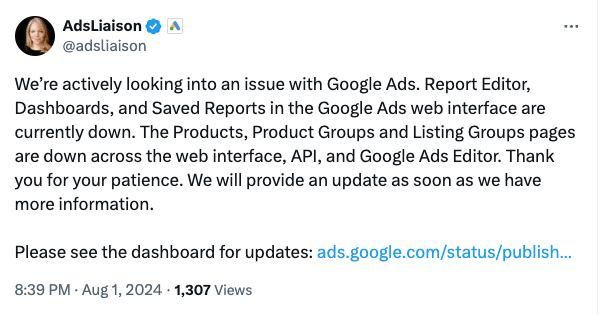
What to watch. How quickly Google resolves the outage and addresses the data exposure, and potential fallout from the privacy breach.
First seen: UK advertising agency, Bidnamic reported a severe data breach on LinkedIn between July 30-31, 2024, with advertisers seeing competitors’ sensitive information in their accounts.
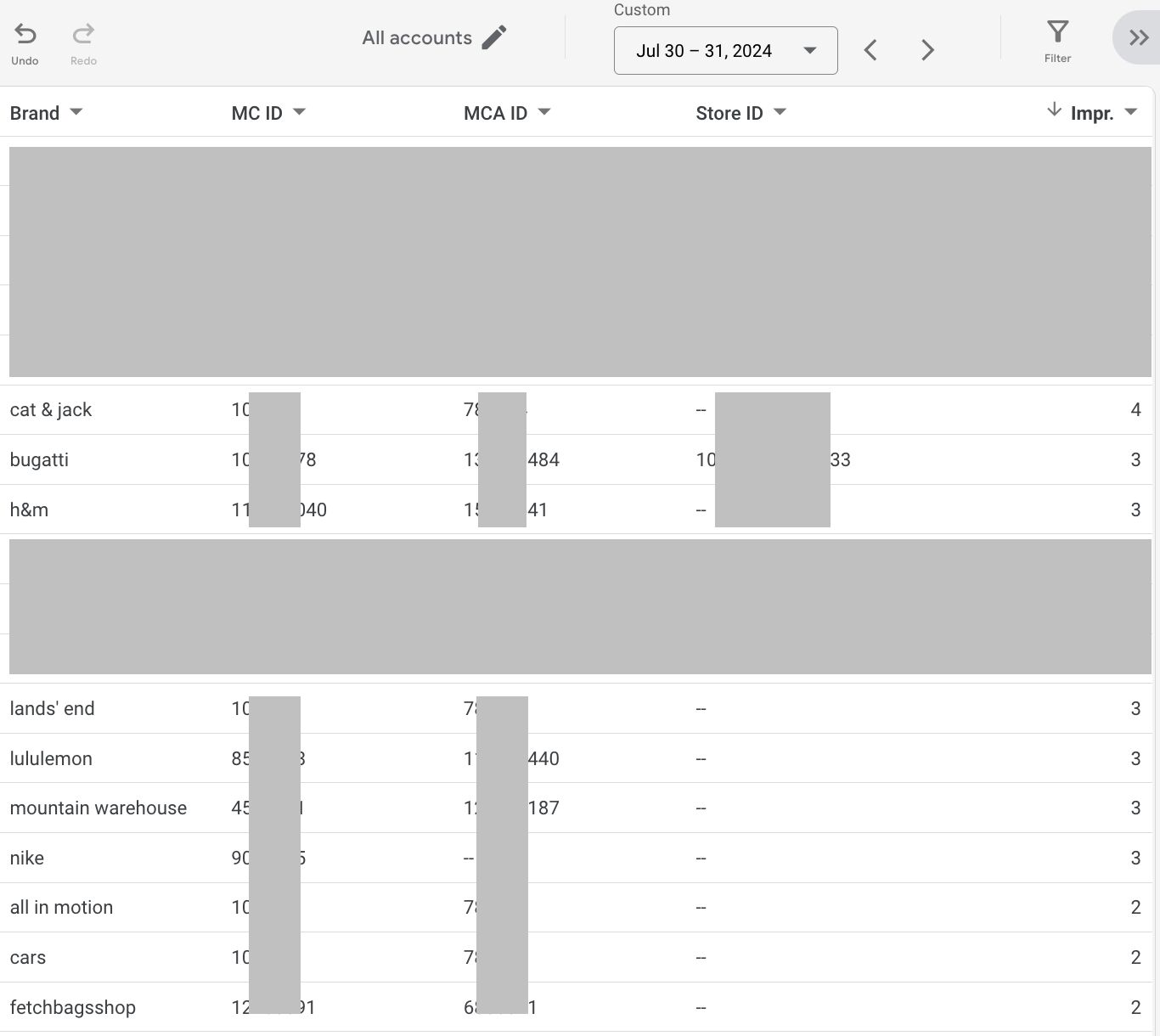
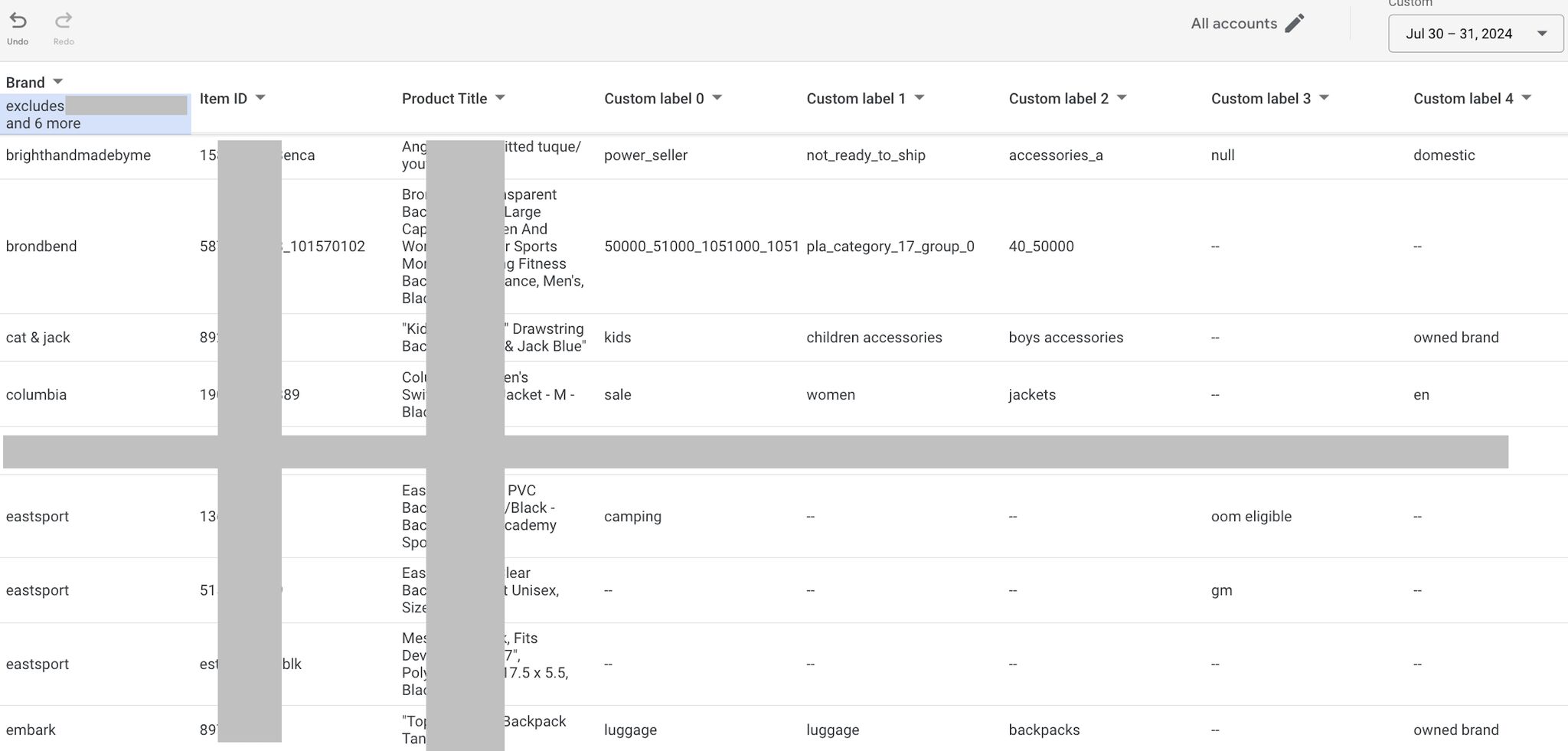
Bottom line. Advertisers should exercise caution when accessing their Google Ads accounts and avoid acting on any data until Google confirms the issue is resolved.
from Search Engine Land https://ift.tt/F6r3oyO
via https://ift.tt/ACkqeRu https://ift.tt/F6r3oyO

